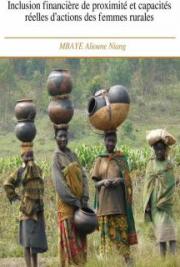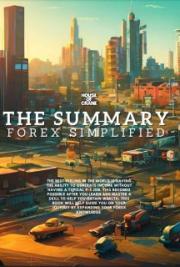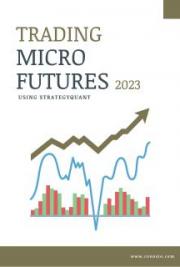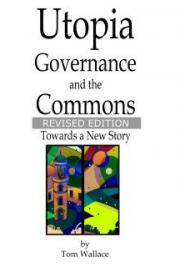Definitions of Money Laundering Terms
419 Fraud Scheme: An advanced fee fraud scheme, known as “419 fraud” in reference to the fraud section in Nigeria’s criminal code. This specific type of scam is generally referred to as the Nigerian scam because of its prevalence in the country. Such schemes typically involve promising the victim a significant share of a large sum of money, in return for a small up-front payment, which the fraudster claims to require in order to cover the cost of documentation, transfers, etc. Frequently, the sum is said to be lottery proceeds or personal/family funds being moved out of a country by a victim of an oppressive government, although many types of scenarios have been used. This scheme is perpetrated globally through email, fax, or mail.
Anti-Money Laundering/Combating the Financing of Terrorism (AML/CFT): Collective term used to describe the overall legal, procedural, and enforcement regime countries must implement to fight the threats of money laundering and terrorism financing.
Bearer Share: A bearer share is an equity security that is solely owned by whoever holds the physical stock certificate. The company that issues the bearer shares does not register the owner of the stock nor does it track transfers of ownership. The company issues dividends to bearer shareholders when a physical coupon is presented.
Black Market Peso Exchange (BMPE): One of the most pernicious money laundering schemes in the Western Hemisphere. It is also one of the largest, processing billions of dollars’ worth of drug proceeds a year from Colombia alone via TBML, “smurfing,” cash smuggling, and other schemes. BMPE-like methodologies are also found outside the Western Hemisphere. There are variations on the schemes involved, but generally drug traffickers repatriate and exchange illicit profits obtained in the United States without moving funds across borders. In a simple BMPE scheme, a money launderer collaborates with a merchant operating in Colombia or Venezuela to provide him, at a discounted rate, U.S. dollars in the United States. These funds, usually drug proceeds, are used to purchase merchandise in the United States for export to the merchant. In return, the merchant who import the goods provides the money launderer with local-denominated funds (pesos) in Colombia or Venezuela. The broker takes a cut and passes along the remainder to the responsible drug cartel.
Bulk Cash Smuggling: Bulk cash refers to the large amounts of currency notes criminals accumulate as a result of various types of criminal activity. Smuggling, in the context of bulk cash, refers to criminals’ subsequent attempts to physically transport the money from one country to another.
Cross-border currency reporting: Per FATF recommendation, countries should establish a currency declaration system that applies to all incoming and outgoing physical transportation of cash and other negotiable monetary instruments.
Counter-valuation: Often employed in settling debts between hawaladars or traders. One of the parties over-or-undervalues a commodity or trade item such as gold, thereby transferring value to another party and/or offsetting debt owed.
Currency Transaction Report (CTR): Financial institutions in some jurisdictions are required to file a CTR whenever they process a currency transaction exceeding a certain amount. In the United States, for example, the reporting threshold is $10,000. The amount varies per jurisdiction. These reports include important identifying information about accountholders and the transactions. The reports are generally transmitted to the country’s FIU.
Customer Due Diligence/Know Your Customer (CDD/KYC): The first step financial institutions must take to detect, deter, and prevent money laundering and terrorism financing, namely, maintaining adequate knowledge and data about customers and their financial activities.
Egmont Group of FIUs: The international standard-setter for FIUs. The organization was created with the goal of serving as a center to overcome the obstacles preventing cross-border information sharing between FIUs.
FATF-Style Regional Body (FSRB): These bodies – which are modeled on FATF and are granted certain rights by that organization – serve as regional centers for matters related to AML/CFT. Their primary purpose is to promote a member jurisdiction’s implementation of comprehensive AML/CFT regimes and implement the FATF recommendations.
Financial Action Task Force (FATF): FATF was created by the G7 leaders in 1989 in order to address increased alarm about money laundering’s threat to the international financial system. This intergovernmental policy making body was given the mandate of examining money laundering techniques and trends and setting international standards for combating money laundering and terrorist financing.
Financial Intelligence Unit (FIU): In many countries, a central national agency responsible for receiving, requesting, analyzing, and/or disseminating disclosures of financial information to the competent authorities, primarily concerning suspected proceeds of crime and potential financing of terrorism. An FIU’s mandate is backed up by national legislation or regulation. The Financial Crimes Enforcement Network (FinCEN) is the U.S. financial intelligence unit.
Free Trade Zone (FTZ): A special commercial and/or industrial area where foreign and domestic merchandise may be brought in without being subject to the payment of usual customs duties, taxes, and/or fees. Merchandise, including raw materials, components, and finished goods, may be stored, sold, exhibited, repacked, assembled, sorted, or otherwise manipulated prior to re-export or entry into the area of the country covered by customs. Duties are imposed on the merchandise (or items manufactured from the merchandise) only when the goods pass from the zone into an area of the country subject to customs. FTZs may also be called special economic zones, free ports, duty-free zones, or bonded warehouses.
Funnel Account: An individual or business account in one geographic area that receives multiple cash deposits, often in amounts below the cash reporting threshold, and from which the funds are withdrawn in a different geographic area with little time elapsing between the deposits and withdrawals.
Hawala: A centuries-old broker system based on trust, found throughout South Asia, the Arab world, and parts of Africa, Europe, and the Americas. It allows customers and brokers (called hawaladars) to transfer money or value without physically moving it, often in areas of the world where banks and other formal institutions have little or no presence. It is used by many different cultures, but under different names; “hawala” is used often as a catchall term for such systems in discussions of terrorism financing and related issues.
Hawaladar: A broker in a hawala or hawala-type network.
International Business Company (IBC): Firms registered in an offshore jurisdiction by a non-resident that are precluded from doing business with residents in the jurisdiction. Offshore entities may facilitate hiding behind proxies and complicated business structures. IBCs are frequently used in the “layering” stage of money laundering.
Integration: The last stage of the money laundering process. The laundered money is introduced into the economy through methods that make it appear to be normal business activity, to include real estate purchases, investing in the stock market, and buying automobiles, gold, and other high-value items.
Kimberly Process (KP): The Kimberly Process was initiated by the UN to keep “conflict” or “blood” diamonds out of international commerce, thereby drying up the funds that sometimes fuel armed conflicts in Africa’s diamond producing regions.
Layering: This is the second stage of the money laundering process. The purpose of this stage is to make it more difficult for law enforcement to detect or follow the trail of illegal proceeds. Methods include converting cash into monetary instruments, wire transferring money between bank accounts, etc.
Legal Person: A company, or other entity that has legal rights and is subject to obligations. In the FATF Recommendations, a legal person refers to a partnership, corporation, association, or other established entity that can conduct business or own property, as opposed to a human being.
Mutual Evaluation (ME): All FATF and FSRB members have committed to undergoing periodic multilateral monitoring and peer review to assess their compliance with FATF’s recommendations. Mutual evaluations are one of the FATF’s/FSRB’s primary instruments for determining the effectiveness of a country’s AML/CFT regime.
Mutual Evaluation Report (MER): At the end of the FATF/FSRB mutual evaluation process, the assessment team issues a report that describes the country’s AML/CFT regime and rates its effectiveness and compliance with the FATF Recommendations.
Mobile Payments or M-Payments: An umbrella term that generally refers to the growing use of cell phones to credit, send, receive, and transfer money and virtual value.
Natural Person: In jurisprudence, a natural person is a real human being, as opposed to a legal person (see above). In many cases, fundamental human rights are implicitly granted only to natural persons.
Offshore Financial Center: Usually a low-tax jurisdiction that provides financial and investment services to non-resident companies and individuals. Generally, companies doing business in offshore centers are prohibited from having clients or customers who are resident in the jurisdiction. Such centers may have strong secrecy provisions or minimal identification requirements.
Over-invoicing: When money launderers and those involved with value transfer, trade-fraud, and illicit finance misrepresent goods or services on an invoice by indicating they cost more than they are actually worth. This allows one party in the transaction to transfer money to the other under the guise of legitimate trade.
Politically Exposed Person (PEP): A term describing someone who has been entrusted with a prominent public function, or an individual who is closely related to such a person.
Placement: This is the first stage of the money laundering process. Illicit money is disguised or misrepresented, then placed into circulation through financial institutions, casinos, shops, and other businesses, both local and abroad. A variety of methods can be used for this purpose, including currency smuggling, bank transactions, currency exchanges, securities purchases, structuring transactions, and blending illicit with licit funds.
Shell Company: An incorporated company with no significant operations, established for the sole purpose of holding or transferring funds, often for money laundering purposes. As the name implies, shell companies have only a name, address, and bank accounts; clever money launderers often attempt to make them look more like real businesses by maintaining fake financial records and other elements. Shell companies are often incorporated as IBCs.
Smurfing/Structuring: A money laundering technique that involves splitting a large bank deposit into smaller deposits to evade financial transparency reporting requirements.
Suspicious Transaction Report/Suspicious Activity Report (STR/SAR): If a financial institution suspects or has reasonable grounds to suspect that the funds involved in a given transaction derive from criminal or terrorist activity, it is obligated to file a report with its national FIU containing key information about the transaction. In the United States, SAR is the most common term for such a report, though STR is used in most other jurisdictions.
Tipping Off: The disclosure of the reporting of suspicious or unusual activity to an individual who is the subject of such a report, or to a third party. The FATF Recommendations call for such an action to be criminalized.
Trade-Based Money Laundering (TBML): The process of disguising the proceeds of crime and moving value via trade transactions in an attempt to legitimize their illicit origin.
Trade Transparency Unit (TTU): TTUs examine trade between countries by comparing, for example, the export records from Country A and the corresponding import records from Country B. Allowing for some recognized variables, the data should match. Any wide discrepancies could be indicative of trade fraud (including TBML), corruption, or the back door to underground remittance systems and informal value transfer systems, such as hawala.
Under-invoicing: When money launderers and those involved with value transfer, trade fraud, and illicit finance misrepresent goods or services on an invoice by indicating they cost less than they are actually worth. This allows the traders to settle debts between each other in the form of goods or services.
Unexplained Wealth Order (UWO): A type of court order to compel someone to reveal the sources of their unexplained wealth. UWOs require the owner of an asset to explain how he or she was able to afford that asset. Persons who fail to provide a response may have assets seized or may be subject to other sanctions.
UNSCR 1267: UN Security Council Resolution 1267 and subsequent resolutions require all member states to take specific measures against individuals and entities associated with the Taliban and al-Qaida. The “1267 Committee” maintains a public list of these individuals and entities, and countries are encouraged to submit potential names to the committee for designation.
UNSCR 1373: UN Security Council Resolution 1373 requires states to freeze without delay the assets of individuals and entities associated with any global terrorist organization. This is significant because it goes beyond the scope of Resolution 1267 and requires member states to impose sanctions against all terrorist entities.
Virtual Currency: Virtual currency is an internet-based form of currency or medium of exchange, distinct from physical currencies or forms of value such as banknotes, coins, and gold. It is electronically created and stored. Some forms are encrypted. They allow for instantaneous transactions and borderless transfer of ownership. Virtual currencies generally can be purchased, traded, and exchanged among user groups and can be used to buy physical goods and services, but can also be limited or restricted to certain online communities, such as a given social network or internet game. Virtual currencies are purchased directly or indirectly with genuine money at a given exchange rate and can generally be remotely redeemed for genuine monetary credit or cash. According to the U.S. Department of Treasury, virtual currency operates like traditional currency, but does not have all the same attributes; i.e., it does not have legal tender status.
Zakat: One of the five pillars of Islam, translated as “alms giving.” It involves giving a percentage of one’s possessions to charity. Often compared to tithing, zakat is intended to help poor and deprived Muslims. The Muslim community is obligated to both collect zakat and distribute it fairly.







